When Do I Need a Fishing License? Legal Requirements Explained
Fishing is something everybody should do at least every once in a while. It’s relaxing while remaining engaging for both your body and mind, helps you develop various skills, and it’s one of the few sports you can do right up until the day you die.
However, in the US, you actually can’t just pick up a rod and reel and go fishing. You need a license.
That’s controversial to some, annoying to others, and overall, a barrier that makes it harder to get new anglers on the water.
So, when do you need a fishing license, and what are the requirements to get one?
We’re going to cover that over the next few sections, and hopefully, you’ll have a better understanding of them.
Newsletter Signup
Why Do You Need a Fishing License?
First and foremost, you don’t always need a fishing license. We’ll talk about that later. However, you do need one 99% of the time.
Why is that? Shouldn’t we all be able to pick up some gear and go enjoy our natural environment? Well, you have a point, but there’s more to it than that.
Look at the places people fish. You don’t think that those parks and well-maintained lakes take care of themselves, do you? While you might not see them often because they stay out of the way, there are a lot of workers who strive to take care of public fisheries. Someone has to cut the grass, stock the bathrooms, be on standby for weigh-ins and emergencies, pick up the trash unethical fishermen leave, etc.
Then, there’s fish stocking. A lot of ponds and lakes are stocked annually. That’s not cheap. Some of the grass carp used to keep the water clean are around $1000 per fish, and they’re bred sterile to keep them from taking over.
Funding is also necessary to perform official research. When diseases break out among the fish, professionals have to determine what’s going on and solve the problem, wildlife experts often keep an eye on fish populations to study their habits, and a lot of effort goes into all that.
Finally, there are tons of fishermen who already disrespect fish populations. They take as many as they want without caring about their size, chuck unwanted fish on the bank to flop around and rot, and just generally disrespect the entire resource. Fishing licenses cost money, and that helps cut back on the number of people who don’t care. Some still pay, but it helps a bit.
The money from fishing license sales is used for all of that and more. So, when you buy your fishing license, don’t think of it as having your natural rights taken. Look at it as helping to take care of the resources you’re using without actually having to put the effort into maintaining it all yourself and hoping no one messes it up.
When Do I Need a Fishing License?
This is a hard question to answer because states dictate most of the laws when it comes to fishing in the United States. There’s not one big fishing law that lays everything out for everyone. This also means that, in some situations, you might need a license in one place, but when you’re traveling, you can fish without one.
So, always take this information as a general rule of thumb, and check the specific laws for any state you might fish in.
We’re going to separate this section into various sub-sections to help organize everything and cover most possibilities.
1: Age
Age restrictions on fishing up to every state, but in general, kids don’t need them.
Most states start requiring fishing licenses when you turn 15 or 16.
This is a great general rule. It still ensures that more advanced anglers are helping to support wildlife preservation and official research into environmental health, but there’s no need to pay for kids. This means that parents don’t have to worry about shelling out cash for each of their kids when they don’t even know if the kid is going to truly fish, and kids can enjoy the hobby and learn about it without any worry of being checked for licenses.
Again, 15 or 16 is just the average. Some states require them earlier, and some don’t require them until later. To find out exactly what your state requires, just check your local fishing regulations. Every state has its own online resource page.
It’s also important to note that the requirement doesn’t go away. Once you’re of age to get one, you have to have one any time you’re fishing beyond that point unless the state specifically exempts seniors. In states that do that, the rule usually exempts people aged 64 and older.
2: Location
Just to get this out of the way 99% of locations are going to require that you have a license to fish. If it’s accessible to the public, just assume that you need one. If it’s a private fishery, such as a pay lake, you may or may not have to have a license. In private fisheries where you do need one, you can usually buy a day pass license on-site. To make sure, call ahead before visiting such places.
When we say “public” places, we don’t just mean local parks and developed fishing spots. The same rules apply to wilderness locations as well.
We’ll talk about exceptions to this rule later on.
3: Out-of-State Fishing
This is an odd one to cover because while the rules differ slightly from state to state, we’ve already covered that. However, there’s one detail that a lot of anglers miss and end up getting in trouble for.
Fishing licenses are state-based.
So, let’s say you live in Illinois. You buy your license every year, and you know you have a valid fishing license on your person at all times. You work in Missouri, and on the way home from work one day, you decide to fish at a little public pond that has caught your eye for a few casts. A wildlife officer approaches you and asks for your license, and you happily hand it over. Congratulations. You just got fined.
When you fish outside of the state you’re licensed in, you have to get a license from that state. Luckily, one-day fishing licenses are available, and you can pick up a license from practically every outdoor store and tackle shop. Just don’t forget that you need to buy a whole new license when fishing out of state.
Exceptions
Sometimes, you don’t need a license. We’ve already covered the details about kids not needing them, but there are situations you can take advantage of as an adult, too.
1: Go Fishing Day
Every year, states set aside a day or weekend when licenses aren’t necessary. Anyone can go fishing, and there are no licenses required.
This is meant to get people outdoors and try the sport. Now, one day per year isn’t really worthwhile to an experienced angler, but it’s a great opportunity to take an older teen on their first fishing trip, a coworker or new significant other who has never gone fishing, etc.
2: Private Property
If you own a private pond on your property, or you have a friend who does, you don’t need a license to fish in that specific water. The same goes for some private ponds located in communities. Trailer parks, gated communities, and other such places sometimes have fisheries that are only for the people who live there, and those are license-free fairly often. You do have to check with the landowner to make sure, though.
Fishing clubs sometimes lack licensing rules, because they own the property the water is on, but more often than not, an angler who is accepted into a fishing club is going to have a license.
The government can’t really require you to purchase a license to catch your own fish on the property you own.
However, keep in mind that this does not apply to waterfront property.
Let’s say you own a waterfront home with a dock, and a river runs past it. You can’t just cast into the river and start reeling in big bass without a license. You don’t own the river.
In any of these cases, there can be no tributaries or inlets leading into your lake, because that means you have public fish moving in and out of it. It must be an isolated body of water.
3: You’re Exempted
Please note that none of what we are listing will count in every state. However, it is worth looking up whether your state allows these exemptions.
First, seniors are exempt in many states, and this usually starts at the age of 64. So, if you’re an old-timer who wants to enjoy fishing in your retirement years, you likely don’t have to worry about licensing.
Veterans and active military service members also enjoy this benefit in most states. So, if you’re home from deployment and want to relax with a fishing trip, you usually won’t need to get a license to do so.
Some states also extend these benefits to people with certain permanent disabilities.
Finally, charter boats take care of your licensing for you. So, you don’t need a license to go on a charter boat. It’s included in the fee.
Even if you fall into one of these exempt groups in your state, all other rules apply to you. You still have to abide by all the rules and regulations of the state and the individual fishery outside of having a license.
What Do You Need to Get a Fishing License?
The requirements for a fishing license tend to be the same in every state with minor fluctuations.
First, you need to be able to pay the fee. The most common licensing requirement is an annual license that lets you fish for one whole year before it expires. This is usually $10-$30 depending on the state. Daily, weekly, and lifelong licenses are also available in most states at a variety of prices.
Then, you need your identification information. An ID and SS number are usually all you need. Even then, if you keep your previous year’s license, you usually only need that, and they’ll copy all your information onto a new license.
Finally, you usually need to be a resident of the state you’re applying in for most options. If that sounds weird considering out-of-state fishing laws, don’t worry. Every state has license options for out-of-state visitors. They just tend to come at a slightly higher price.
What Happens If You Don’t Get a Fishing License?
If you’ve read all this information and decided you’re going to tempt fate and fish without a license, you should probably think twice.
There are serious consequences for fishing without one.
First, you’re not contributing to the water you’re fishing in. You’re just taking from it, and if you’re not treating it right on top of that, it’s even worse. The money from fishing licenses is used for important land management tasks, cleaning up after lazy fishermen, building the infrastructure you use to go to the bathroom or drive to spots, and even stocking new generations of fish when the water can’t sustain certain fish on its own.
Of course, if the moral aspect of it doesn’t affect you, there are tangible consequences, too.
Most notably, you’ll be fined regardless of what state you live in, and that fine can reach $12,000.
Jail isn’t off the table, either. If you get caught multiple times, you can spend some time behind bars for it, and in many cases, you’ll permanently lose your fishing privileges.
Become a Better Angler with BassForecast
You know when you need a fishing license, and once you have your license, you’re ready to start fishing. However, it might take a while to get good at it. BassForecast is here to help.
Our bass fishing app provides detailed maps of every North American waterway, community tips that will help you learn how to fish for bass, in-depth weather stats in real-time, a spot-on solunar, and more to help you make the most of your fishing experience.
Download the BassForecast fishing app today.
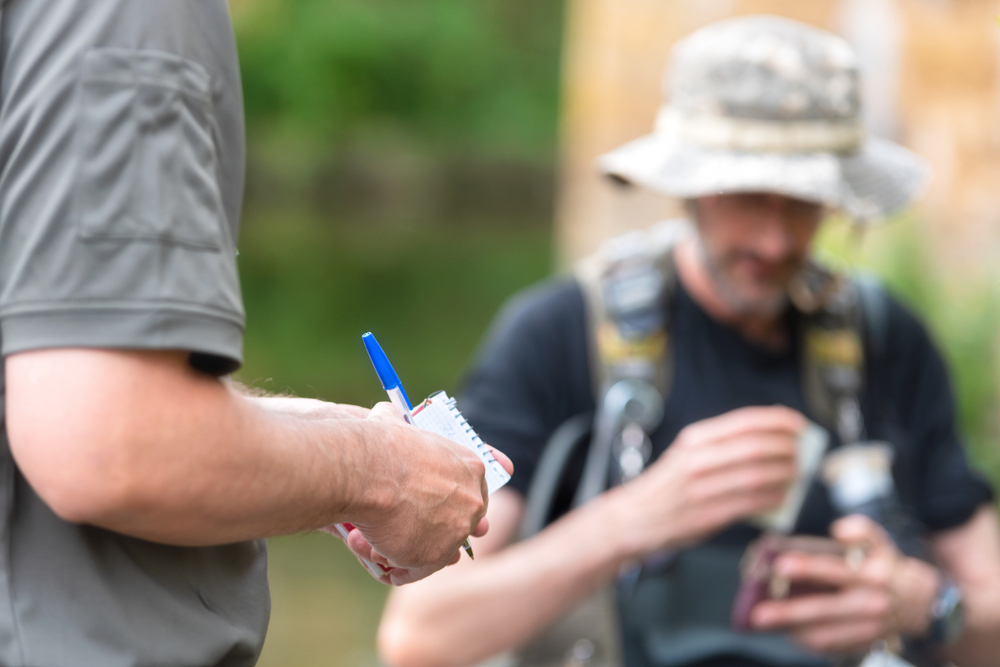
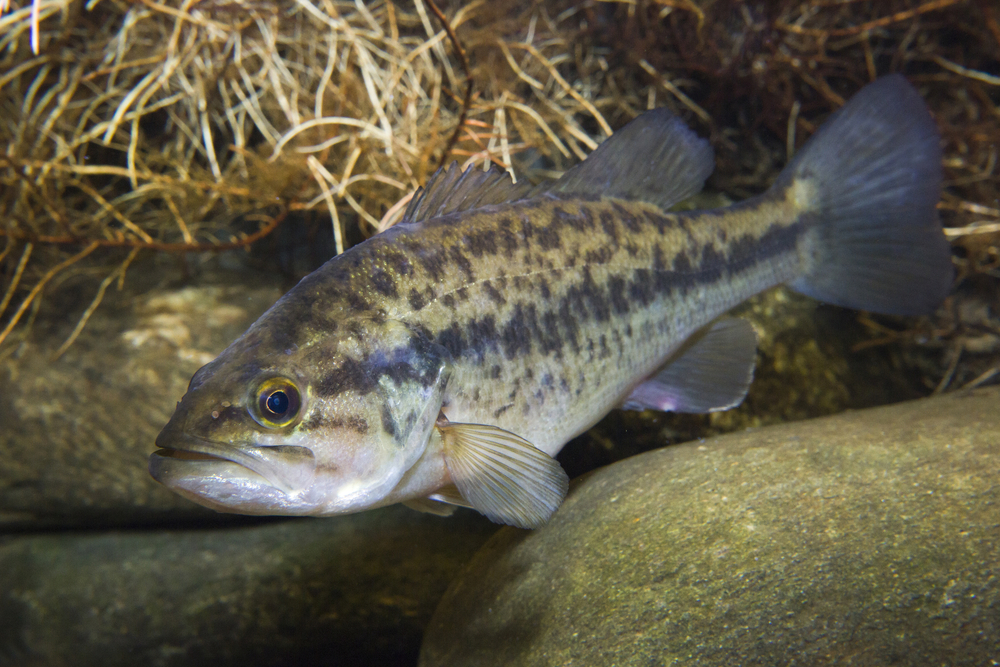
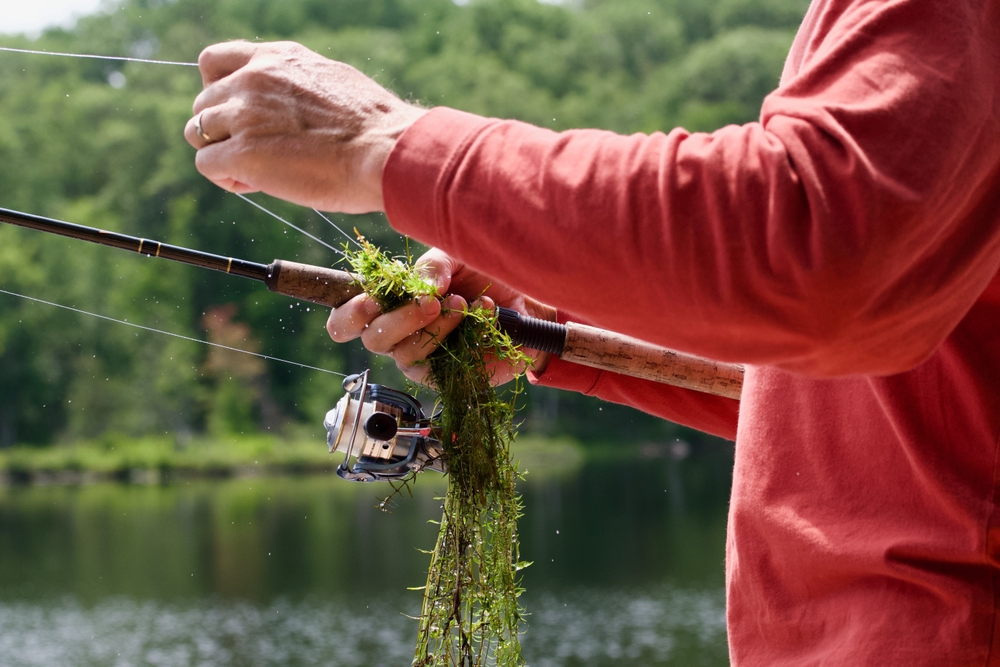
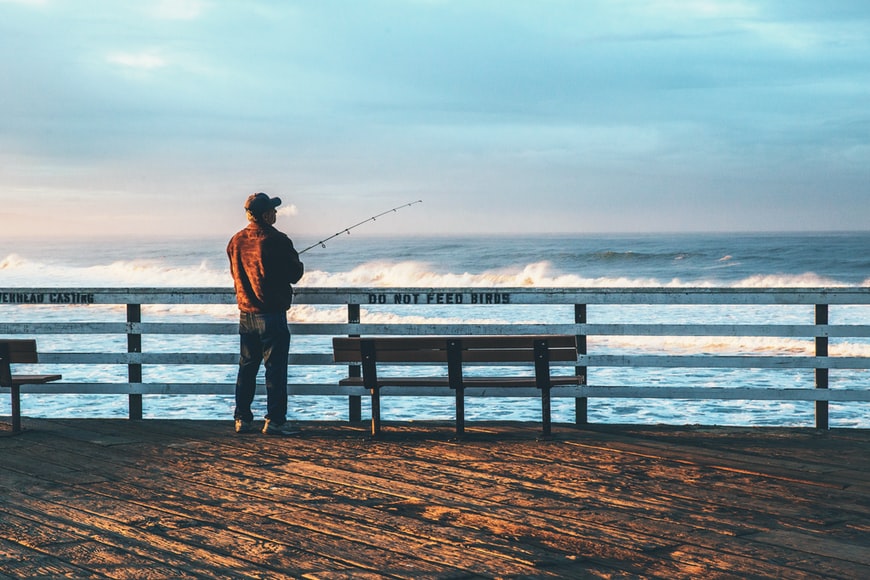
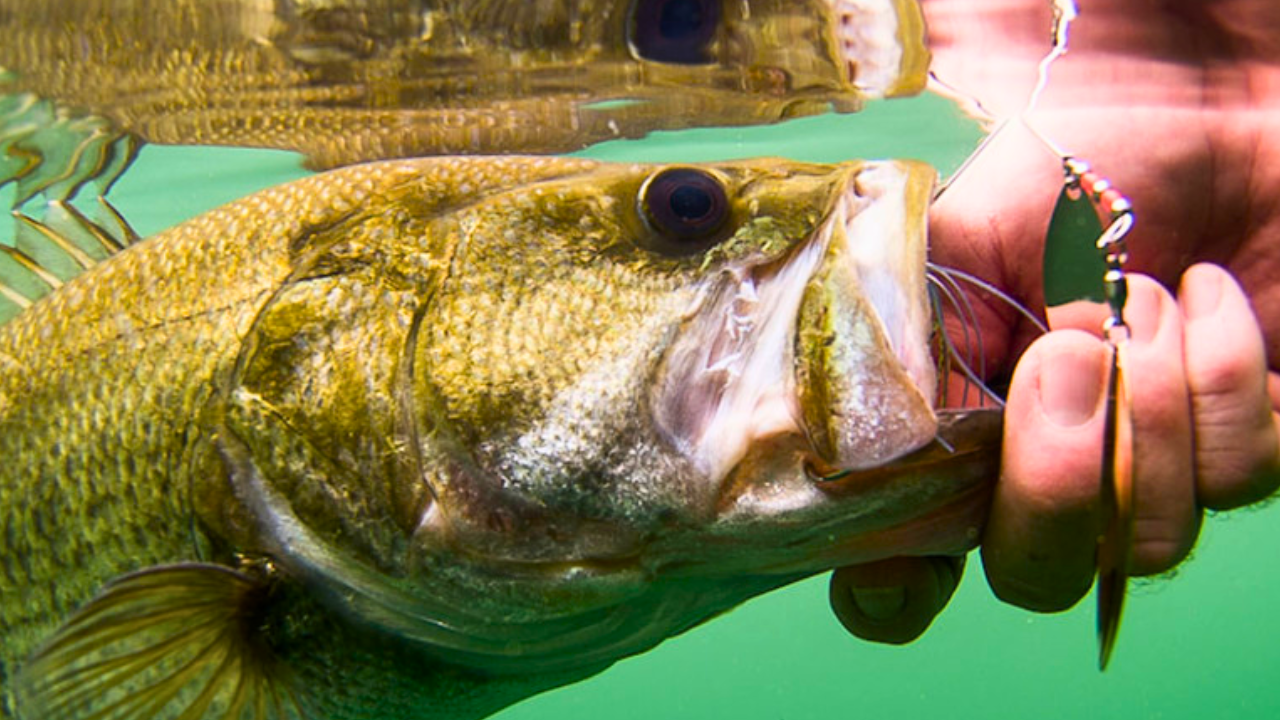
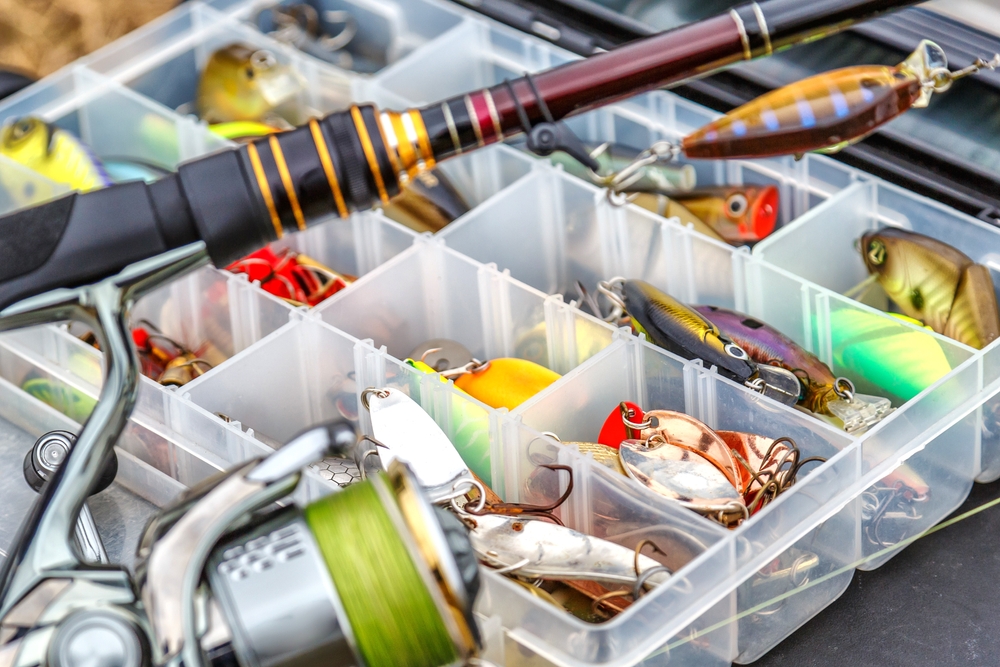
.png)
.png)